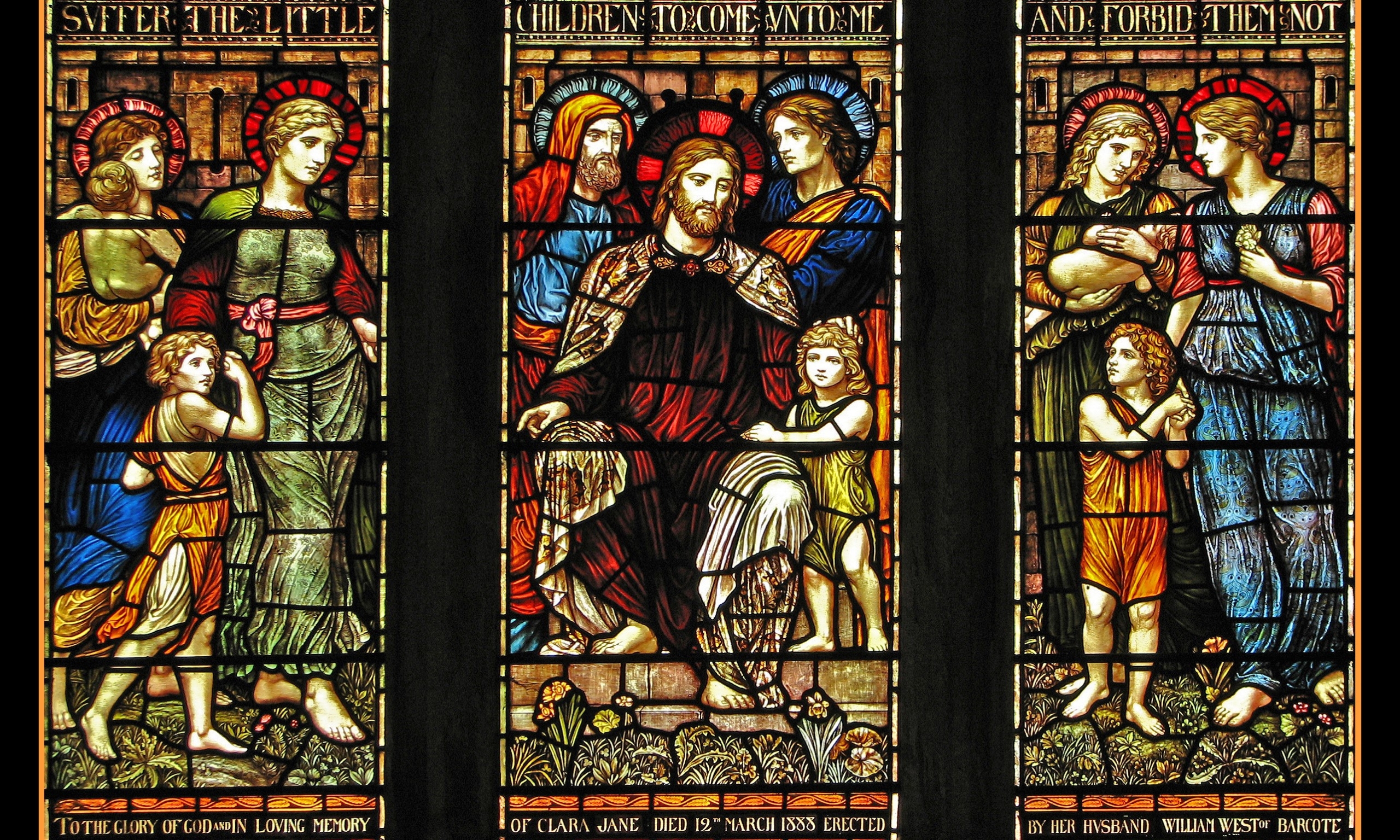Today’s Gospel is perhaps the earliest recording of what many call an “awkward moment.” We are told “an argument arose among the disciples about which of them was the greatest. Jesus realized the intention of their hearts and took a child and placed it by his side and said to them, ‘Whoever receives this child in my name receives me, and whoever receives me receives the one who sent me. For the one who is least among all of you is the one who is the greatest” (Luke 9:46-48).
The moment is awkward for two reasons. On the surface, the situation is as if a conference room of adults walk out of their manager’s meeting to play with a ball that they found and then start arguing about who gets to be captain of their game. The office workers ought to be mature adults, meaning that they never should leave a meeting, start playing with a ball, and then start to argue, and most especially if their boss is present for the whole thing. The disciples do something analogous insofar as they are mature men who should have understood that arguing about who is greater among them while in the presence of Jesus only shows their thick-headed and childish tendencies.
At a deeper level, however, the interaction between Jesus and the disciples is awkward because after spending so much time with Jesus, the disciples fight over a matter that Jesus renders insignificant through his prior preaching concerning his Father’s Kingdom. The Kingdom of God that Christ preached to the disciples prior to this argument is precisely one described as inherited by the “poor” in mind and heart (Luke 6:20). It is thus a matter not of misunderstanding Jesus, but of pride and envy among the disciples with regards to power and importance in connection with Jesus’s ministry.
To understand this more fundamental conflict we can turn to the Church Fathers, specifically Cyril of Alexandria. In commenting on this passage in Saint Luke, Saint Cyril of Alexandria tells us that immediately as Jesus “saw this thought in the disciple’s mind, springing up … He saw the weeds, the work of the wicked sower…” and he “tears up the evil by the very root” (Commentary on Luke, Homily 54).
Jesus responds to his disciples as the divine physician who has the power to uproot and change hearts by the medicine of his presence as fully God and fully man. To illustrate the radicality of grace in a new way, Jesus places before them a child, representing “an innocent and humble life”(Commentary on Luke, Homily 54, 237-8). Jesus says that if you receive this child, in his purity of heart, and in his humility with regards to others, it is as if “you receive me.” In other words, the child’s purity of heart and humility are acceptable to Christ because they are like Christ, who humbled himself in the Incarnation. Even though the disciples are fully grown men who follow Jesus, they are rendered immature by their vanity and lack of faith in Jesus. In response, Jesus uses the example of a child to convey the message that God’s power and grace consists not in importance and position, but rather in humility, simplicity of heart, and in those who become the “least” among all. This pattern of life to which Jesus calls his disciples challenges man’s tendency towards pride, vanity, and the fulfillment of life through the acquisition of power. For the Christian, the fulfillment of life lies in a humble purity of heart and mind, for the one who is humble is child-like, and the child is like Christ; and, ultimately, being Christ-like means sharing in the union between the Father and his beloved Son sent into the world.
✠
Photo by Fr. Lawrence Lew, O.P. (used with permission)







